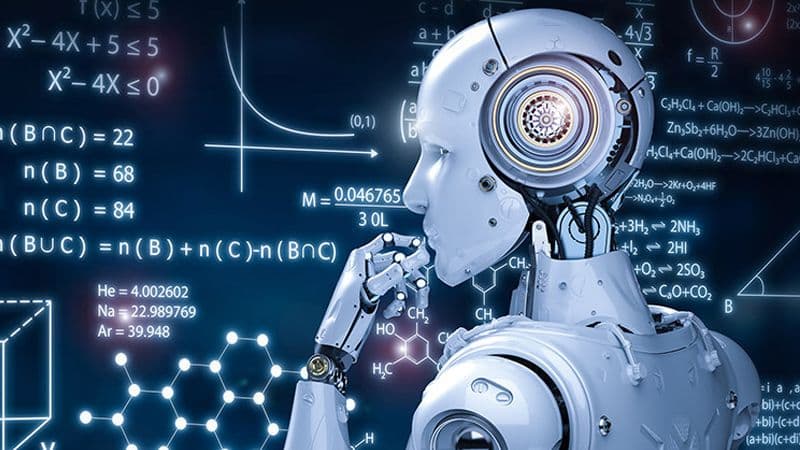Eric - BlogArtificial Intelligence Unveiled: Navigating the Frontier of Innovation

Introduction
Artificial Intelligence (AI) has emerged as a transformative force, reshaping industries, influencing daily life, and pushing the boundaries of what was once deemed possible. As we stand at the forefront of this technological revolution, this article aims to unravel the complexities of AI, exploring its applications, impact on society, and the ethical considerations that accompany its rapid advancement.
- Defining Artificial Intelligence:At its core, Artificial Intelligence refers to the development of computer systems that can perform tasks that typically require human intelligence. These tasks encompass a wide range of activities, from problem-solving and learning to speech recognition and decision-making. AI systems can be classified into two main categories: narrow or weak AI, designed for specific tasks, and general or strong AI, capable of handling any intellectual task that a human can.
- Machine Learning: The Brainpower of AI:Machine Learning (ML) is a subset of AI that focuses on enabling machines to learn from data and improve their performance over time. Through algorithms and statistical models, machines can analyze patterns, make predictions, and adapt to new information. Supervised learning, unsupervised learning, and reinforcement learning are key paradigms within machine learning that contribute to the growth of AI capabilities.
- Deep Learning: Mimicking Neural Networks:Deep Learning is a subset of machine learning that involves neural networks with multiple layers (deep neural networks). Inspired by the human brain's structure, deep learning algorithms can process vast amounts of data, recognize complex patterns, and make decisions without explicit programming. Applications range from image and speech recognition to natural language processing.
- Applications Across Industries:AI has permeated various industries, revolutionizing processes and decision-making. In healthcare, AI aids in diagnostics and personalized treatment plans. In finance, it powers fraud detection systems and algorithmic trading. Autonomous vehicles leverage AI for navigation and obstacle recognition, while manufacturing benefits from predictive maintenance and quality control.
- Natural Language Processing (NLP): Bridging Communication Gaps:NLP focuses on enabling machines to understand, interpret, and generate human language. Virtual assistants like Siri and Alexa, language translation services, and chatbots exemplify the practical applications of NLP. As NLP continues to advance, it has the potential to break down language barriers and facilitate more natural human-computer interactions.
- AI and Creativity:Contrary to concerns about AI replacing human creativity, it is increasingly being used as a tool to augment and enhance creative processes. From generating art and music to assisting in content creation, AI is becoming a collaborative partner in unleashing human creativity.
- Ethical Considerations: Navigating the AI Landscape:The rapid progression of AI raises ethical concerns regarding privacy, bias, and accountability. Issues related to data security, algorithmic bias, and the societal impact of AI systems require careful consideration. Establishing ethical guidelines and regulations is crucial to ensure that AI technologies are developed and deployed responsibly.
- AI in Research and Science: Accelerating Discoveries:AI is accelerating scientific research by processing large datasets, identifying patterns, and simulating complex scenarios. In fields such as drug discovery, climate modeling, and genomics, AI is contributing to breakthroughs that might otherwise be unattainable.
- The Future of AI: Anticipating Possibilities:The future of AI holds immense potential. Continued advancements in AI research may lead to the development of more sophisticated systems capable of nuanced decision-making and a deeper understanding of human emotions. Ethical AI principles and ongoing collaboration between researchers, industry stakeholders, and policymakers will play a crucial role in shaping this future.
- Empowering Society: The Human-AI Partnership:As AI continues to evolve, its impact on society will be most meaningful when it complements human abilities. The focus should be on fostering a symbiotic relationship where AI enhances productivity, addresses challenges, and contributes to a better quality of life for individuals across the globe.
Conclusion
Artificial Intelligence is not just a technological advancement; it is a paradigm shift that is reshaping the way we live, work, and interact with the world. Embracing the potential of AI while navigating the ethical considerations is imperative for harnessing its benefits responsibly. As we venture into the uncharted territories of AI, the human ability to innovate, adapt, and ethically guide the development of this transformative technology will ultimately determine the course of our AI-driven future.